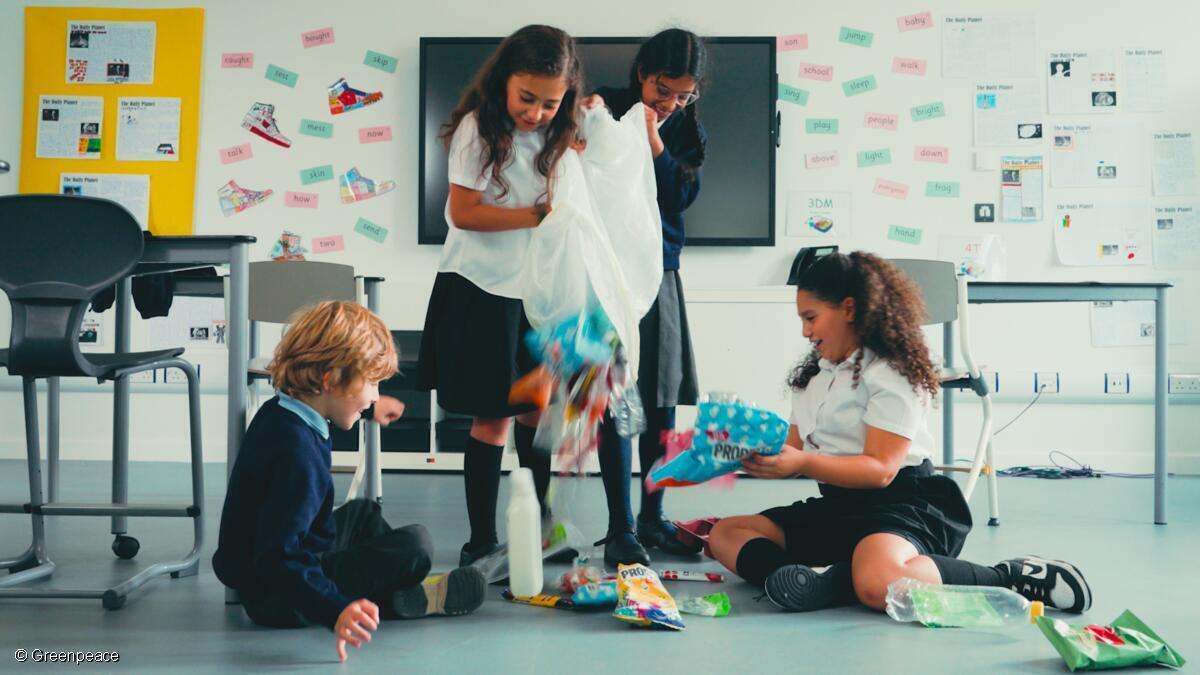Greenpeace UK and Everyday Plastic are reuniting for The Big Plastic Count 2024, representing a once-in-a-generation opportunity for the public to influence the UN Global Plastics Treaty.
Across all 650 parliamentary constituencies of the UK, more than 30,000 participants are ready to count their plastic waste as registration opens for The Big Plastic Count, including 3,800 school classes and 2,300 teachers. Set to take place on 11-17th March 2024, this will be the return of the UK’s largest survey into household plastic waste.
Returning for its second time, the national plastic-counting campaign sees Greenpeace UK and the non-profit organisation Everyday Plastic invite individuals, households, schools, community groups and businesses to take part in the largest plastic investigation of its kind.
“The Big Plastic Count 2024 could be the tipping point for UK government action on plastic.” says Laura Burley, Project Lead, The Big Plastic Count, Greenpeace UK. “The first Count saw the British public spend a combined 2,500 days, or 7 years, counting our plastic rubbish to prove we’re drowning in plastic and can’t simply recycle our way out of the problem. However, the UK government still hasn’t set a legally binding plastic reduction target. Now we’re back to gather even more proof so that UK politicians have no excuse not to act on plastic waste at home and overseas.”
The Big Plastic Count will generate unique statistics from participants to show how much plastic packaging waste leaves UK homes. The results will be used to confront UK ministers with the scale of the plastic waste problem and push them to lead the way at the next round of negotiations for the Global Plastics Treaty set to be held in Ottawa, Canada, from April 23 to April 29. The treaty could lead to a legally binding global agreement on plastic pollution – but it will only deliver the kind of ambitious action needed if countries like the UK push for agreement to reduce plastic production by at least 75% by 2040 and speed up the introduction of innovative reuse and refill models.
“The plastic crisis hasn’t gone away but our government is still tinkering at the edges of meaningful action. Recycling systems can’t cope with the volume of plastic packaging we use, so the government and companies must act to turn off the tap at the source.” Nina Schrank, Head of Plastics, Greenpeace UK
Almost a quarter of a million people participated in The Big Plastic Count in 2022, revealing:
- UK households throw nearly two billion pieces of plastic packaging away weekly.
- Just 12% is recycled in the UK, with the rest being burned, shipped abroad, or languished in landfills.
- 83% of plastic recorded was from food and drink packaging waste, the most common item being fruit and vegetable packaging.
“The natural world can’t cope with all our plastic rubbish. We’ve been calling for action on plastic for years, but the government hasn’t listened. That’s why this year, The Big Plastic Count is gathering even more evidence to push for plastic action in the UK and also globally, in a new UN Global Plastics Treaty focused on reducing plastic production. I’ve signed up for The Big Plastic Count. Will you sign up, too?” Chris Packham, Wildlife TV Presenter & Conservationist
Everyday Plastic founder Daniel Webb collected every piece of his plastic waste for a whole year and developed a unique methodology alongside a scientific researcher to calculate his plastic footprint. Now, The Big Plastic Count offers the public the same chance to discover what happens to their plastic waste once they throw it away.
Registration is now open to sign up for The Big Plastic Count 2024: https://thebigplasticcount.com/sign-up.
Credit: Greenpeace UK





